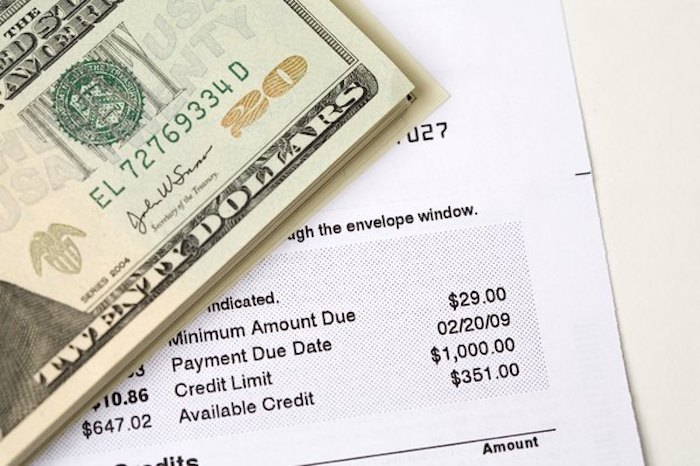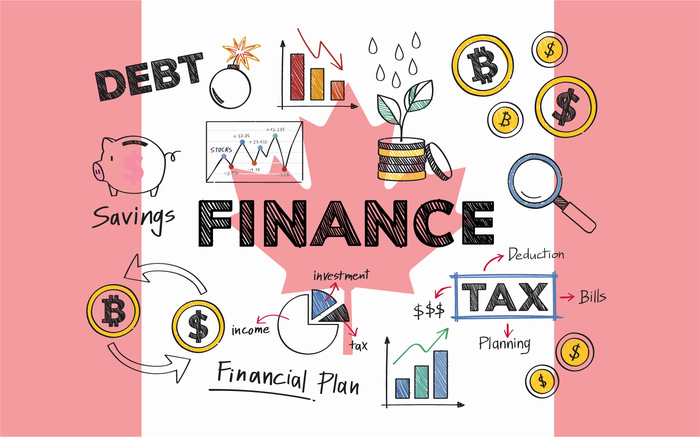Are you struggling with credit card debt? If so, you are not alone. Millions of Americans are in the same boat. Fortunately, there are proven tips for reducing credit card debt and staying out of debt. Following these simple strategies can consolidate your debt and become financially secure. This article will discuss the most effective tips for reducing credit card debt and staying out of debt. We will look at budgeting, debt consolidation, and other strategies to help you become debt-free. With the right approach, you can take control of your finances and live a debt-free life.
Establish a Budget and Track Your Spending: A Key to Reducing Credit Card Debt
Establishing a budget and tracking your spending is key to reducing credit card debt. A budget is a plan that outlines how you will spend your money each month. It is important to set realistic goals for yourself and stick to them. By creating a budget, you can identify areas where you are overspending and make adjustments to help you stay on track.
Tracking your spending is an important part of budgeting. It lets you see where your money is going and how much you spend on each item. You have the option to utilize a spreadsheet or a budgeting app to monitor and keep a record of your expenses. This will help you identify areas where you can cut back and save money.
You may reduce your credit card debt by creating a budget and tracking your spending. You can start by paying off the highest interest-rate credit cards first. This will help you save money in the long run. You can also look for ways to reduce your spending. This could include cutting back on eating out, shopping, and entertainment.
It is also important to create an emergency fund. This is money that you set aside in case of an emergency. This may help you avoid using your credit cards in a crisis.
Establishing a budget and tracking your spending is key to reducing credit card debt. It may help you identify areas where you are overspending and make adjustments to help you stay on track. It can also help you pay off your highest interest rate credit cards first and create an emergency fund. Following these steps can reduce your credit card debt and improve your financial situation.
Take Advantage of Balance Transfer Offers to Reduce Credit Card Debt
If you are having difficulities with credit card debt, consider using balance transfer offers. Balance transfer offers allow you to transfer one credit card’s balance to another with a lower interest rate. This can help you save money on interest and reduce your overall credit card debt.
When you transfer a balance, you are taking out a loan from one credit card company and using it to pay off the balance of another credit card. The new credit card company usually offers a lower interest rate than the original, which can help you save money on interest payments. This can prove particularly advantageous when dealing with a sizable balance on a high-interest credit card.
When you transfer a balance, you will usually be charged a fee. This fee is typically a percentage of the compensation you are moving. It is important to compare the prices of different balance transfer offers to ensure you get the best deal.
It is also important to consider the length of the balance transfer offer. Most balance transfer offers are for a limited time, usually six to twelve months. During this time, you will usually be charged a lower interest rate on the balance you are transferring. After the promotional period ends, the interest rate will usually go back up to the original rate.
When considering a balance transfer offer, it is important to read the terms and conditions carefully. Make sure you understand all the fees and interest rates associated with the offer. Also, make sure you know when the promotional period ends and what the interest rate will be after that.
Taking advantage of balance transfer offers is one of great way to reduce your credit card debt. By transferring your balance to a credit card that offers a lower interest rate, you can effectively reduce your interest payments and expedite the repayment of your debt. However, it is crucial to thoroughly comprehend the terms and conditions of the offer before committing to it.
Use Cash or Debit Cards Instead of Credit Cards
Opting for cash or debit cards rather than credit cards is a prudent approach to financial management. While credit cards can be useful for building credit and earning rewards, they can also lead to debt if not used responsibly.
Cash and debit cards can help you stay on top of your spending and keep your finances in check.
Cash is the most straightforward way to pay for goods and services. It’s easy to keep track of how much you’re spending, and you don’t have to worry about interest or late fees. Cash also allows you to stay within your budget since you can only spend what you have.
Debit cards are also a great way to manage your finances. Debit cards are linked to your checking account, so you can only spend what you have in the account. This helps you stay on top of your spending and avoid overspending. Debit cards also offer the convenience of credit cards without the risk of debt.
When you use cash or debit cards instead of credit cards, you’re less likely to overspend. You’re also less likely to be tempted to make impulse purchases since you can only spend what you have. This can help you stay on top of your budget and avoid debt.
Using cash or debit cards instead of credit cards is a smart way to manage your finances. It can help you stay on top of your spending and avoid debt. Cash and debit cards are convenient and easy to use, and they can help you stay within your budget.
Utilize Credit Card Rewards Programs to Pay Down Debt
Credit card rewards programs can be a great way to pay down debt. With these programs, you can earn points, miles, or cash back on purchases made with your credit card. These rewards can then be used to pay down your debt, reducing the amount of interest you pay and helping you get out of debt faster.
When it comes to utilizing credit card rewards programs to pay down debt, the key is to choose the right card. Seek out a credit card that provides rewards which can be utilized to reduce your debt, such as cashback or points that can be redeemed as statement credits. Prior to signing up, ensure that you thoroughly read the fine print and comprehend the terms and conditions of the rewards program.
Once you have chosen the right card, you can start earning rewards. With most cards, you will earn rewards for every purchase you make. The quantity of rewards you accumulate is contingent upon the type of card you possess and the expenditure amount. For instance, certain cards provide a higher reward rate for specific types of purchases, such as gasoline or groceries.
Once you have earned enough rewards, you can use them to pay down your debt. Most cards allow you to redeem your rewards for statement credits, which will be applied directly to your balance. This can help you pay down your debt faster, as you will be paying less interest on the remaining balance.
When using credit card rewards programs to pay down debt, it is important to remember to pay your balance in full each month. This will help you avoid interest charges and late fees, which can add up quickly. It is also important to keep track of your rewards balance so you know when you have enough rewards to redeem for a statement credit.
Utilizing credit card rewards programs to pay down debt can be a great way to save money and get out of debt faster. With the right card and a little discipline, you can use your rewards to pay down your debt and start living a debt-free life.
Develop a Debt Repayment Plan to Stay Out of Debt
Developing a debt repayment plan is a great way to stay out of debt and manage your finances. A debt repayment plan is a strategy that helps you pay off your debt in a timely manner. It is important to develop a plan that is realistic and achievable so that you can stay out of debt and maintain financial stability.
The first step in developing a debt repayment plan is to assess your current financial situation. Take a look at your income, expenses, and debt. Make a list of all of your debts, including the amount owed, the interest rate, and the minimum payment due. This will help you determine how much you can realistically afford to pay each month.
Once you have a clear picture of your financial situation, you can begin to create a plan to pay off your debt. Start by setting a goal for how much you want to pay each month. Consider setting up automatic payments so that you can stay on track with your payments.
Next, prioritize your debts. You may want to focus on paying off the debt with the highest interest rate first, or you may want to focus on paying off the smallest debt first. Consider the impact of each debt on your credit score and choose the repayment strategy that works best for you.
Finally, make sure to stick to your plan. Set reminders for yourself to make payments on time and stay on track. Consider setting up a budget to help you manage your finances and keep track of your spending.
Developing a debt repayment plan is an important step in staying out of debt and maintaining financial stability. By assessing your financial situation, setting a goal, prioritizing your debts, and sticking to your plan, you can stay out of debt and manage your finances.




